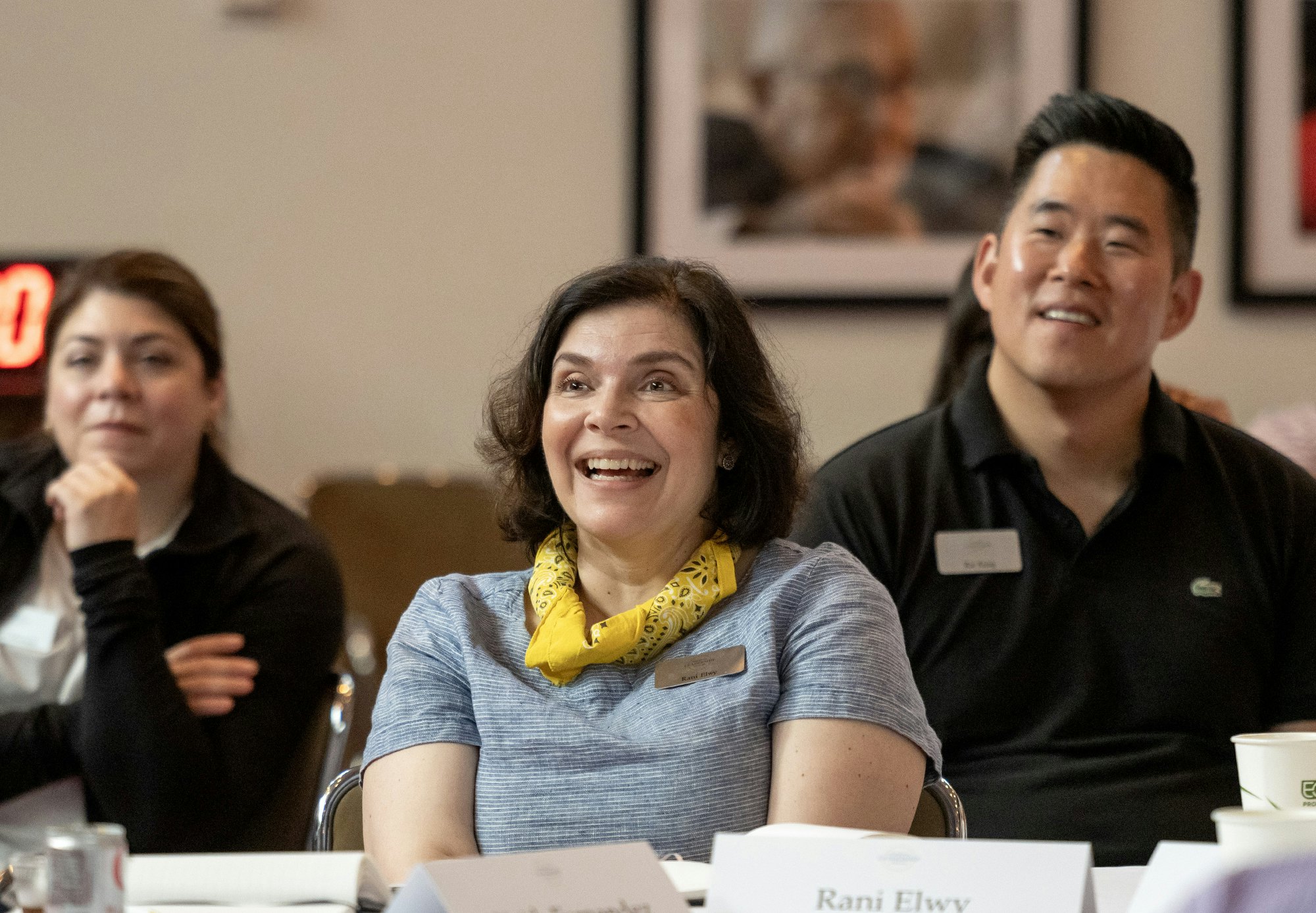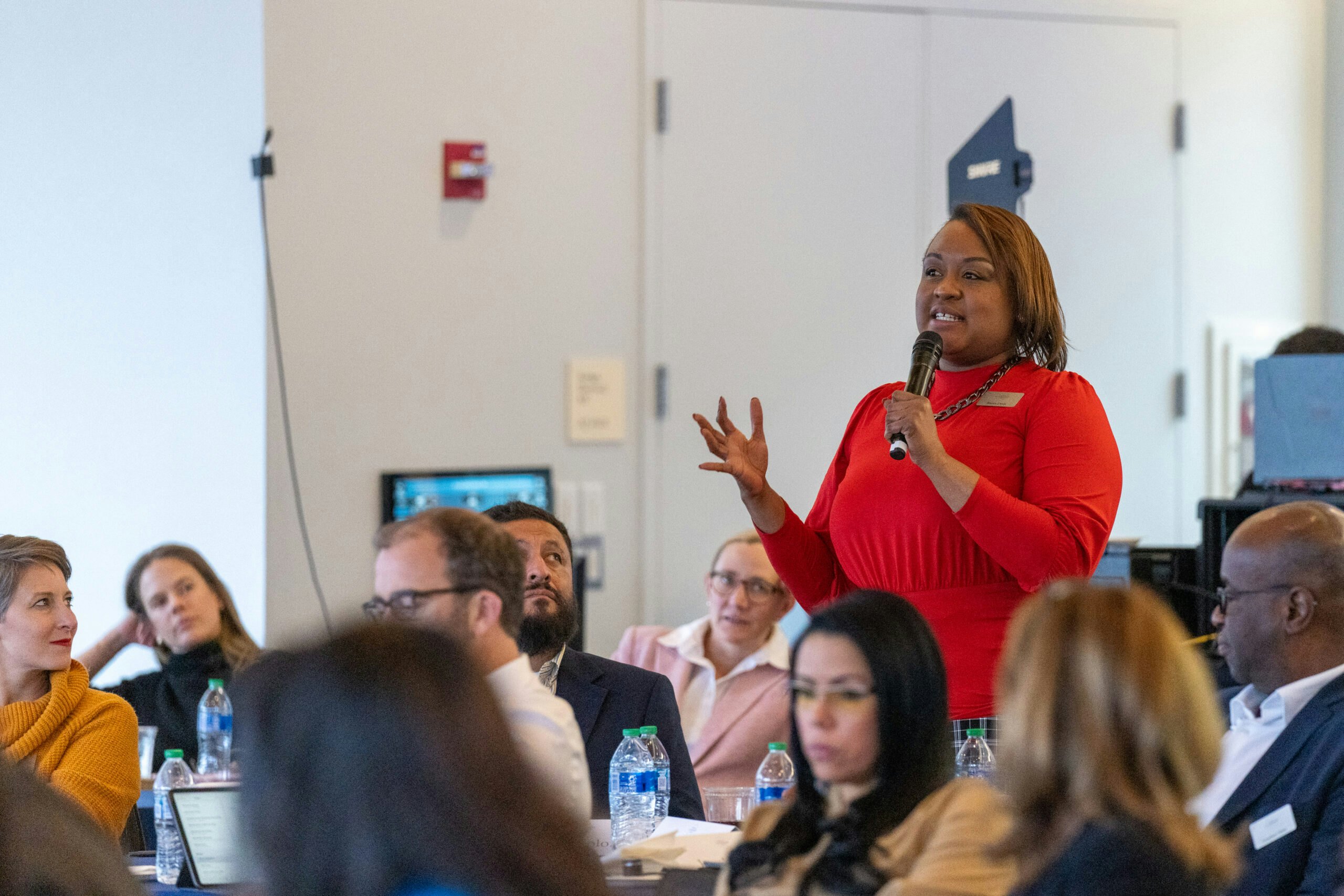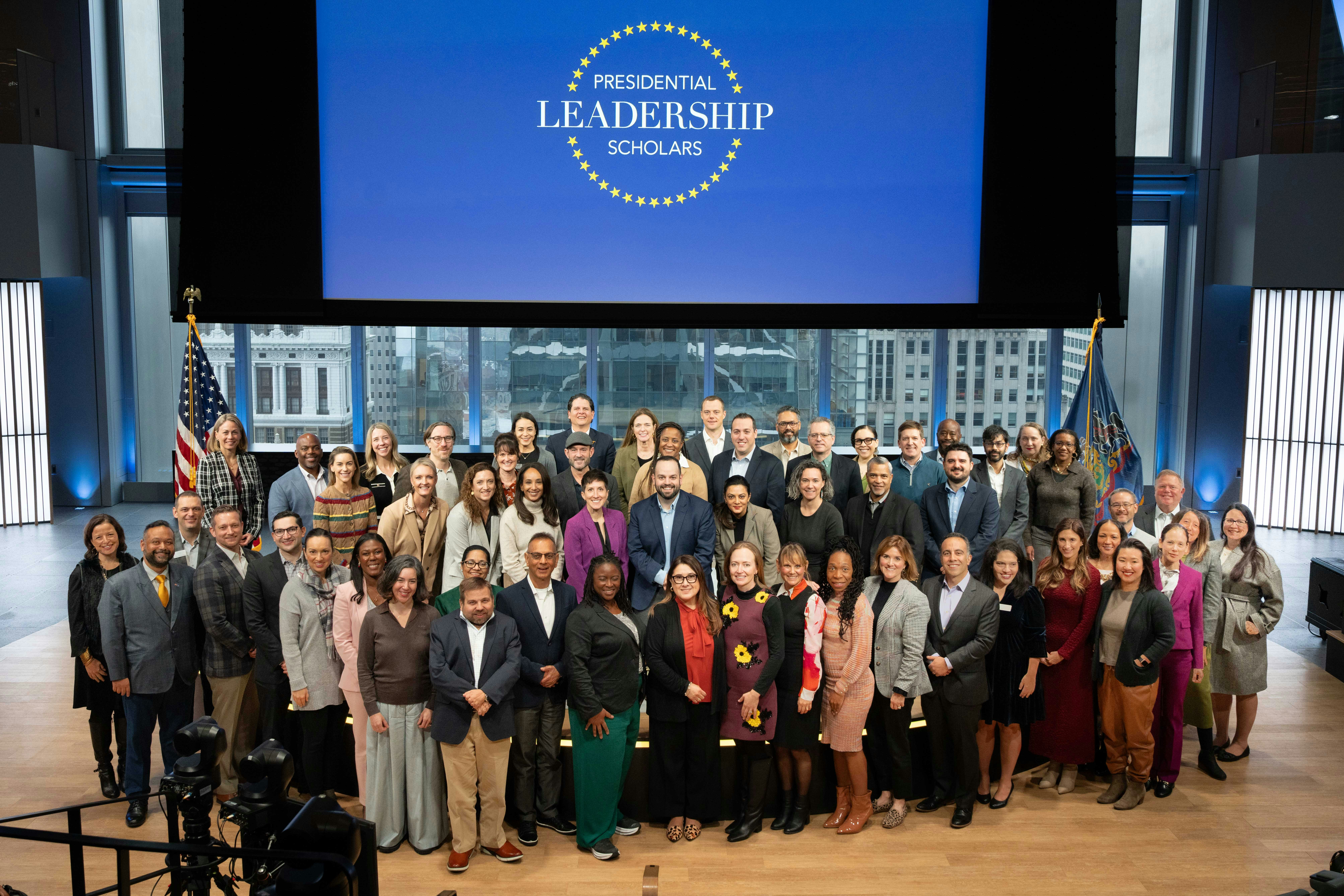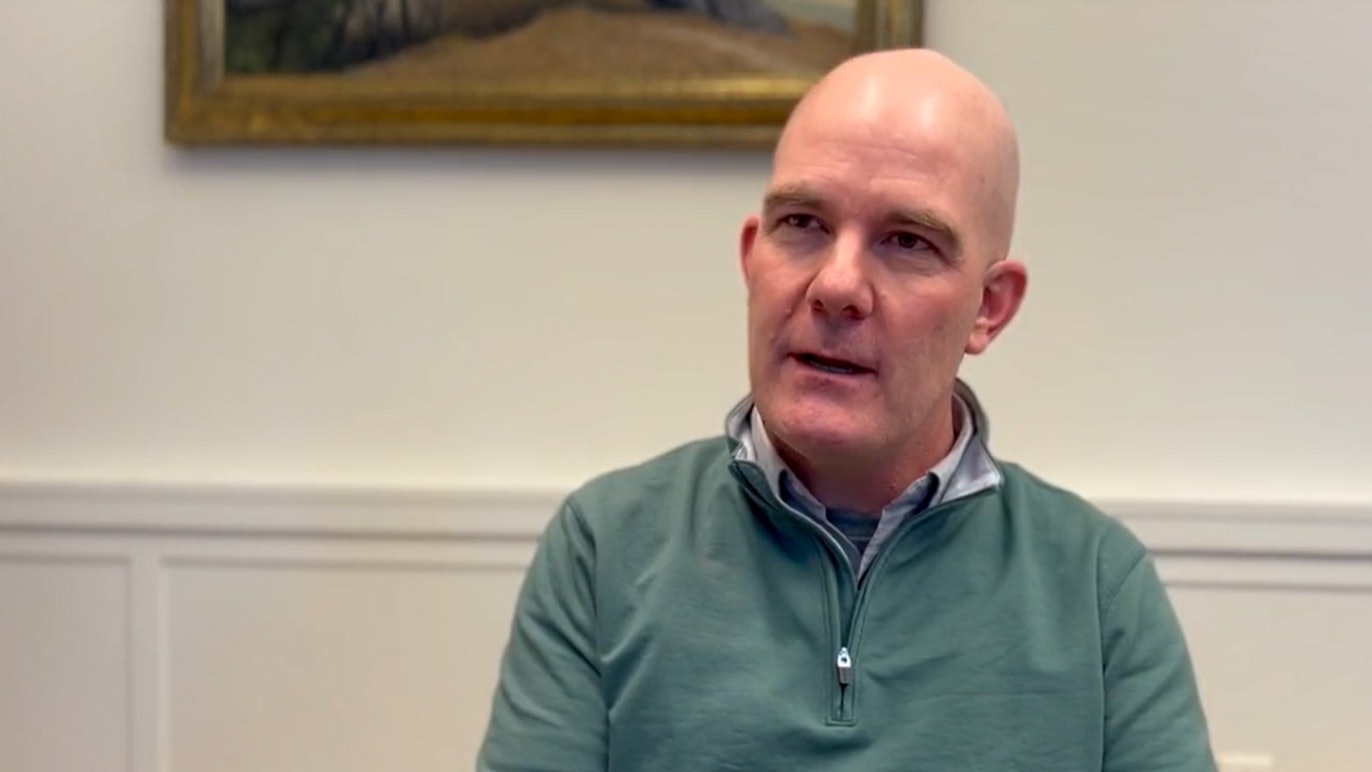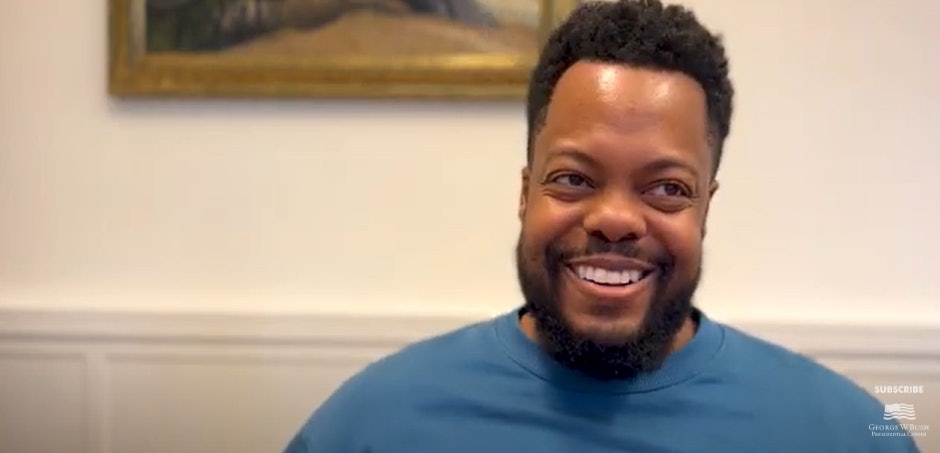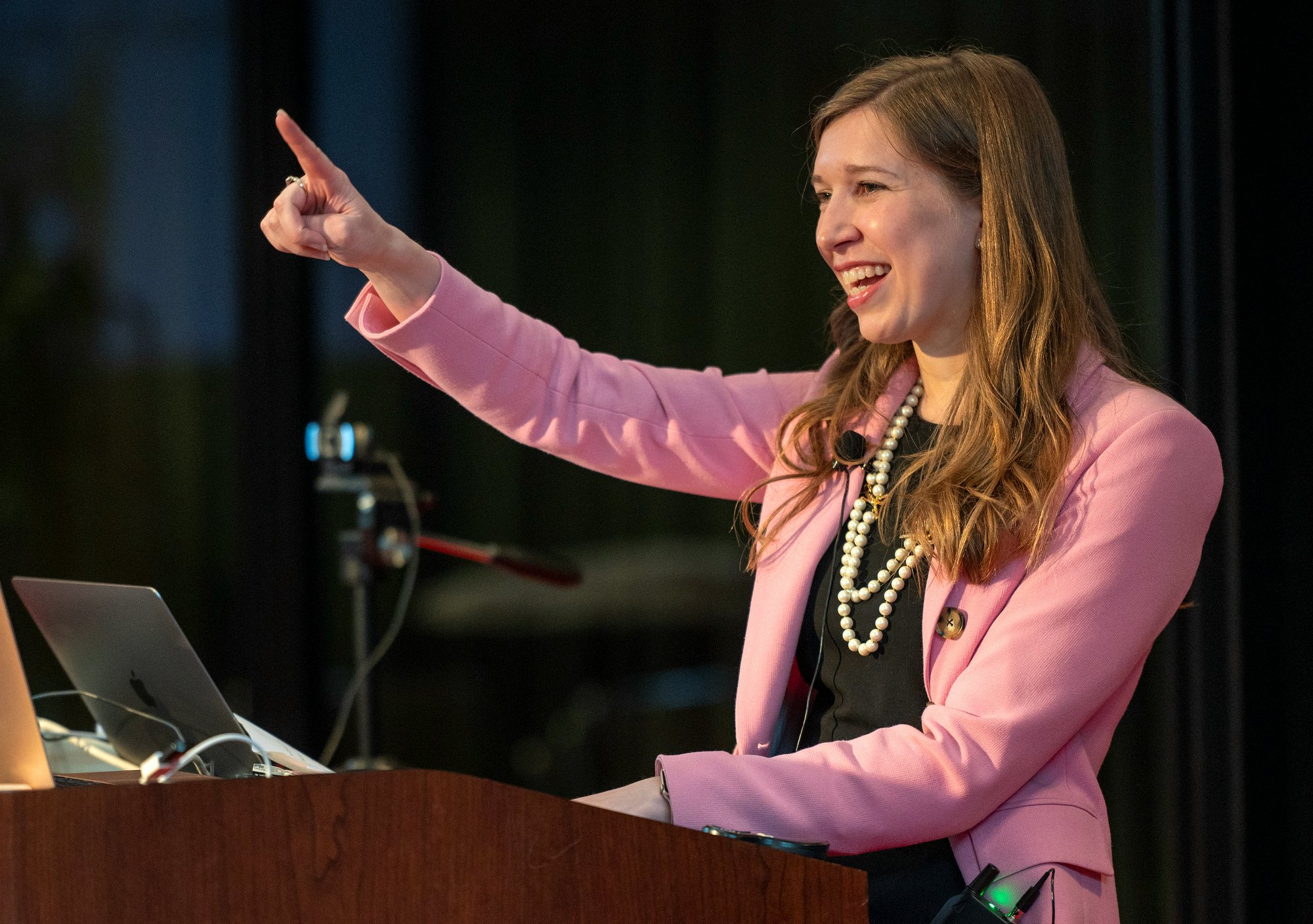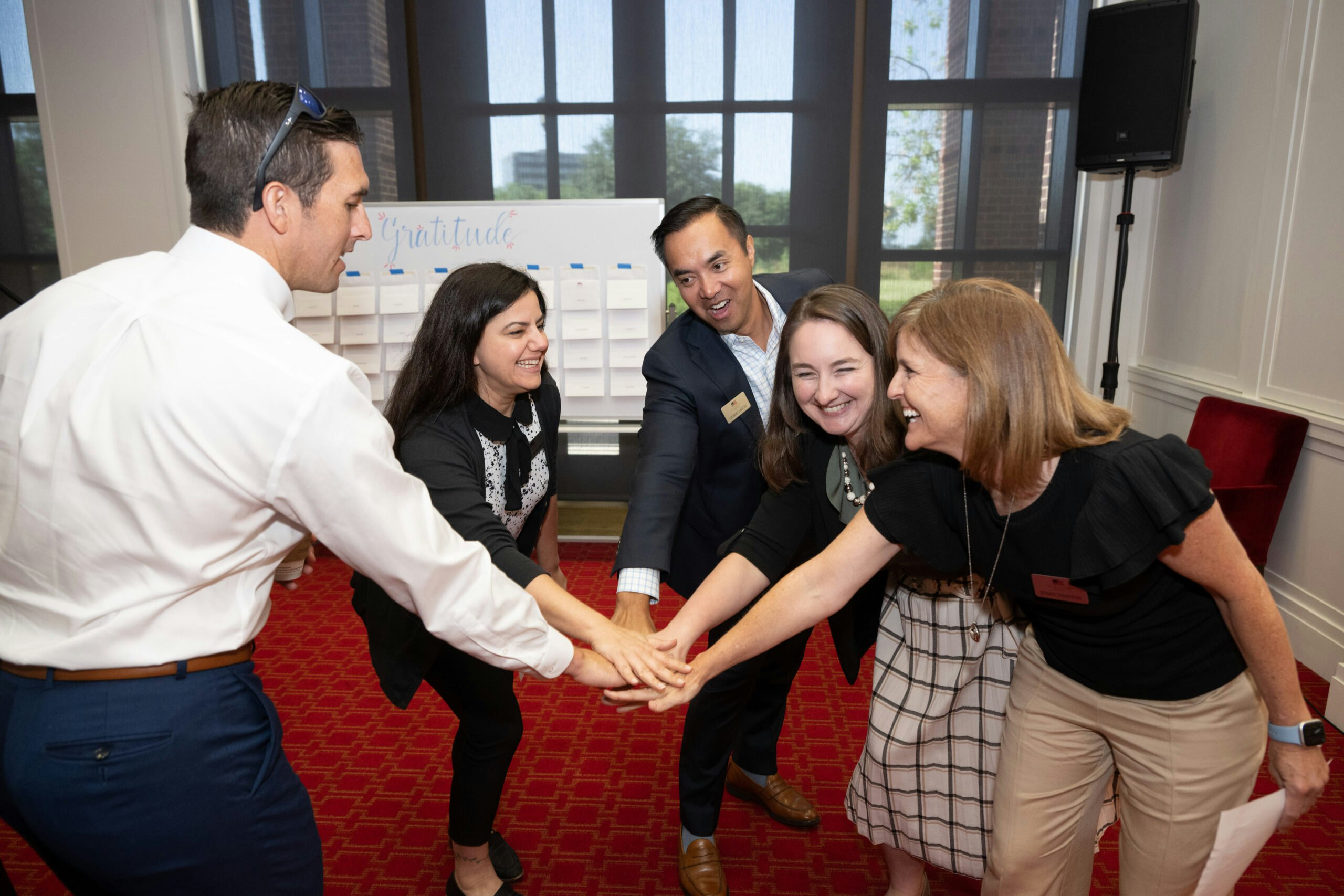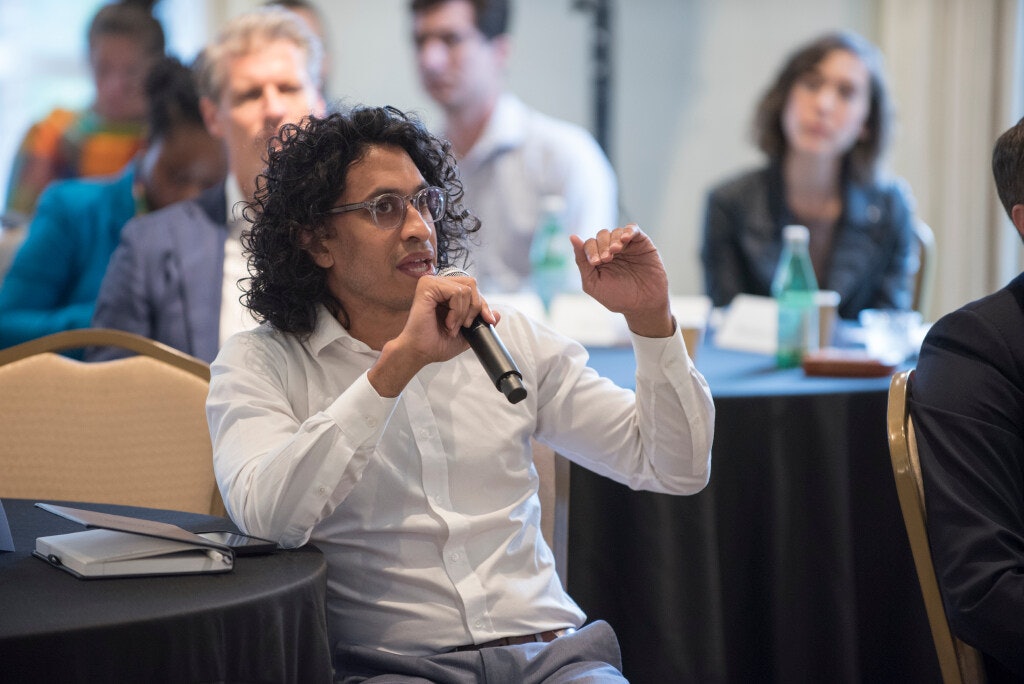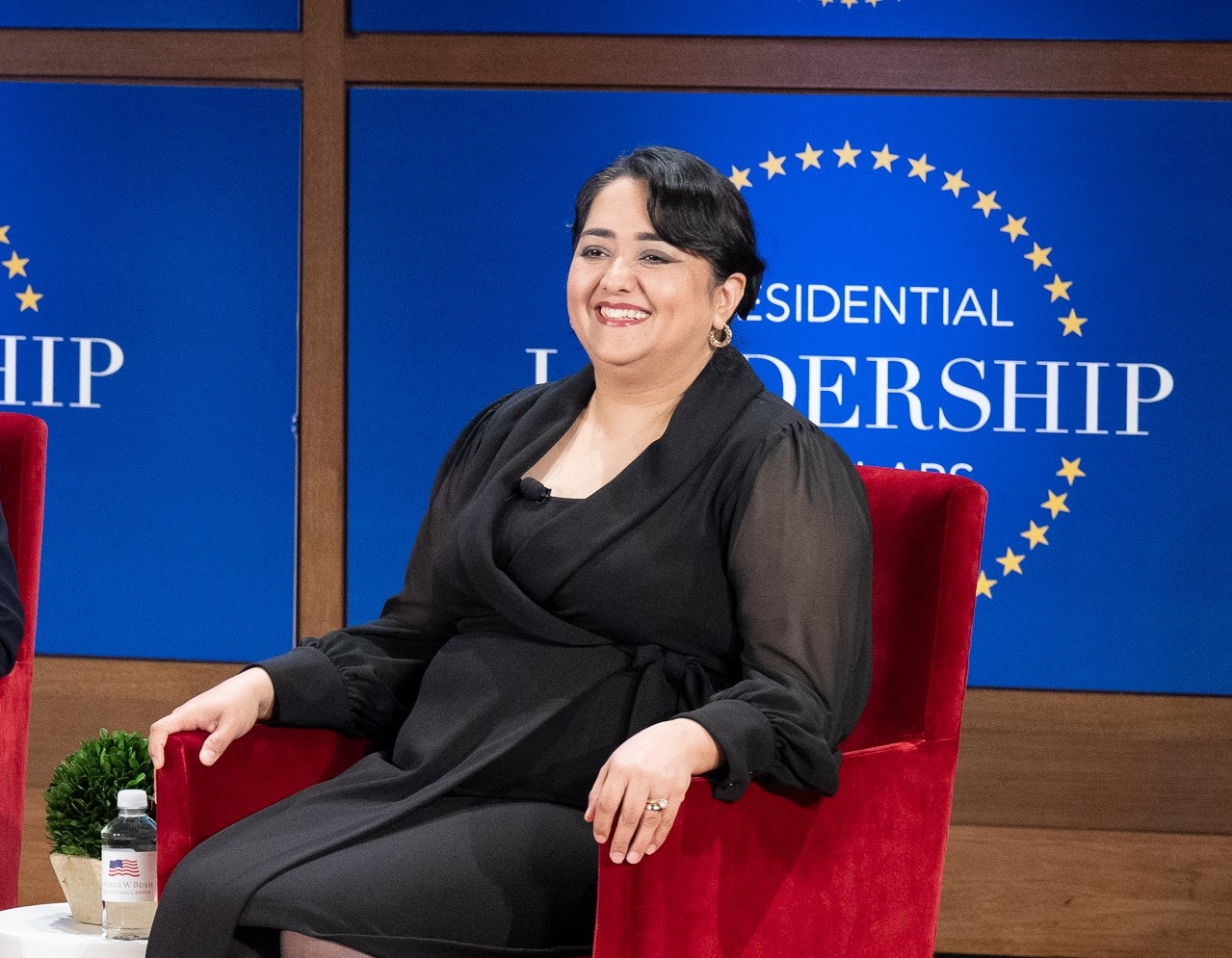Rani Elwy, 2024 Presidential Leadership Scholar and professor of psychiatry and human behavior at the Warren Alpert Medical School at Brown University, shares her passion for health-related policymaking and legislation and four impactful lessons she learned throughout PLS.
Please tell us a little bit about yourself and your personal leadership project.
I have a lot of identities that inform my approach to life and work: mother of three, spouse, daughter of an immigrant, scientist, professor, volunteer, and friend. Professionally, I write grant proposals and academic papers, but my love is narrative writing and storytelling. I’ve used these tools to share my story as a family caregiver of a now young adult with significant medical complications and the challenges I’ve faced trying to succeed in a STEM field while also helping them navigate school, hospitals, and community-based care. The world needs caregivers, and it also needs scientists, mathematicians, engineers, and doctors; we can hold these potentially competing identities at the same time. For more than 10 years, I have informally mentored caregivers from across the country who have read my stories, helping them navigate the biases, prejudices, and stigma they face in their workplaces, developing strategies for overcoming these, and retaining them in their careers. The extraordinary opportunity of PLS has been a chance to move what is an unofficial program into one that is structured and ready to scale and spread, with a goal to reach more family caregivers in STEM than I’ve ever done before.
Please give us an update on what you have been working on since completing the Presidential Leadership Scholars program.
The Class of 2024 said goodbye on June 15 in Philadelphia and since then I’ve spent a lot of time on WhatsApp chatting with them all! Classmates have planned a PLS book club (we have so many books to read!), in-person get togethers, virtual meetups, and are working on a “Module Seven,” date TBD. Workwise, I’ve been developing grant proposals with mentees and colleagues and delivering trainings on implementation science. I am passionate about moving research evidence into real-world clinical and community-based settings. Implementing evidence-based practices – think cognitive behavioral therapy for depression – is harder than one would think, but sustaining these practices over time is even harder. Sustainment often comes through policy change. Related to this, my husband and I are also packing! We will be moving to Washington, D.C., in September, so I can serve as a Robert Wood Johnson Foundation Health Policy Fellow at the National Academy of Medicine. We are renting a furnished apartment just blocks from the National Mall, prioritizing the needs of our dog, Flo, who will be delighted with daily walks near the monuments.
What are you hoping to gain and accomplish as you serve as a Robert Wood Johnson Foundation Health Policy Fellow at the National Academy of Medicine?
The RWJF Health Policy Fellows program is an extraordinary opportunity for me to step away from my roles at Brown University and the VA Bedford Healthcare System for one year, to see how and why (and possibly, why not) evidence informs policymaking and legislation. With my six cohort members, we will develop the skills needed to serve as senior advisors on health-related issues to members of Congress, congressional committees, or within the executive office. I’ll be directly involved in policymaking, aiming to bring research and evidence to bear on legislation and stakeholder engagement. I’ll return home in September 2025 with new abilities for informing research approaches to sustainment, with hopefully more success in this space. Stay tuned!
Which lessons learned during the Presidential Leadership Scholar program have stayed with you the most, and how have you put them into action?
The lessons learned and impact of PLS on my leadership journey will never be quantifiable, but there are several lessons that I think about daily:
- Dan Bartlett, executive vice president of corporate affairs at Walmart and longtime key advisor to President George W. Bush, said that reputation is like a checking account, and that we need to make deposits every day because one day there will be a big withdrawal. I appreciate this emphasis on being a good citizen in work and life, knowing that when something goes wrong, I’ll need others’ strong support during a time of crisis.
- We learned at the LBJ library that we need to expend our capital while we have it, that we can’t waste our influence. If there is something I can do now, while I have that influence, I know that I need to do that – whether that is advocating for better pay for postdoctoral fellows or working with my leadership to build the best research program possible.
- We need to give others our most generous interpretation (MGI) regarding their behavior. As a family caregiver, I know that we all have challenges that others cannot see. But this was a good reminder that even when I am in difficult work situations, I need to apply MGI and be intentionally kind, one of the hardest but most important things I can do as a leader.
- Finally, I think about the sweet spot that exists between what I’m good at, what others need from me, and what brings me joy, as shared by PSL faculty Michael O’Leary. I’ve been less good about focusing on what brings me joy, but PLS has helped bring this back for me, I’m reading, I’m writing, I’m attending storytelling sessions, and I’m so grateful.
What drives your passion for health policy and mental health care, and what in your opinion is the most pressing issue in the space right now?
I’ve been focused on veterans’ access to mental health care for 20 years. During one of my early VA-funded studies on seeking help for depression, a veteran told me that he knew he was depressed but he didn’t want to take medication or talk to anyone; he wanted yoga, he wanted meditation, and he didn’t understand why the VA wouldn’t give him that. This realization launched a new research agenda, bringing my own personal commitment to yoga and meditation – which I learned from my parents – to testing of the effectiveness and subsequent implementation of a range of complementary and integrative health therapies. Initial grant funding for this research was very hard to come by, but the passage of the Comprehensive Addiction and Recovery Act of 2016 changed that. Subtitle C of the CARA legislation focused on VA funding for educational, clinical and research efforts on non-pharmacological treatments to improve veterans’ pain and mental health outcomes. Funding made possible through CARA helped our team empirically demonstrate the connection between policy, research, and evidence-based mental health care. We have so much more work to do to improve the mental health of children, adolescents, and adults, including veterans, and my goal is to make sure our research informs policy in this space. Through the Robert Wood Johnson Foundation Health Policy Fellows program at the National Academy of Medicine, I will also learn from legislators what they need from researchers to inform mental health care policy.

